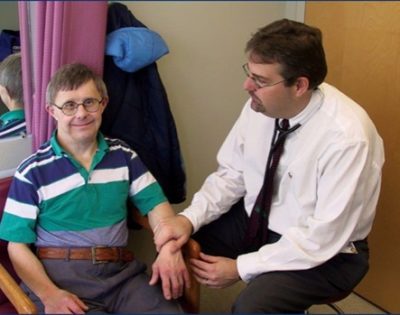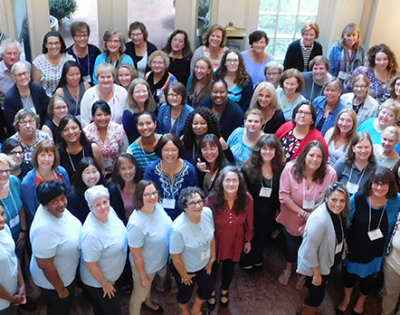The CT LEND program focuses on the training of future leaders from a wide variety of professional disciplines in order to improve the health care delivery system for children with autism and other neurodevelopmental disabilities. In addition to public health students, the targeted audience for the program consists of individuals in the professional and paraprofessional workforce in medicine, dentistry, developmental-behavioral pediatrics, nursing, physical therapy, occupational therapy, school psychology, social work, special education, speech language pathology, and other fields related to public health and disability. The program requires the completion of coursework, research studies, advocacy projects and community practicum assignments with infants, children and youth with developmental disabilities and their families. CT LEND provides funding for trainees who participate in the year long program as:
- Long term trainees - commit 300+ hours
- Medium term trainees - commit 40-299 hours
- Short term trainees - commit up to 39 hours

Trainee Competencies
The foundation of a healthy community requires a highly qualified, diverse workforce that can positively affect many health related factors at the individual, community, and policy levels. This collective is known as the maternal and child health (MCH) workforce. In 2007, the Health Resources and Services Administration's Maternal and Child Health Bureau released the MCH workforce core leadership competencies to support current and future MCH leaders by defining the knowledge and skills necessary to lead in this field. The LEND Curriculum addresses these MCH competencies.

SELF
- MCH knowledge base/context
- Self-reflection
- Ethics
- Critical thinking

OTHERS
- Communication
- Negotiation and conflict resolution
- Cultural competency
- Family-professional partnerships
- Developing others through teaching, coaching, and mentoring
- Interdisciplinary/interprofessional team building

WIDER COMMUNITY
- Working with communities and systems
- Policy
Curriculum Areas of Focus
Interdisciplinary Teams
- Assessment, Intervention and Evaluations
- EBP and Data Based Decision Making
- The Role of Other Disciplines
- Team Communication
- Team Process
Interventions
- Assistive Technology
- Customized Employment
- Intervention Practices
- Personal Futures Planning
- Self Determination
- Self-Advocacy
- Social Competence and Positive Behavior Supports
Leadership
- Advocacy
- Evaluation
- Mentoring Others
- Model Development, Implementation, and Scaling
- Policy Development
- Strategic Planning Systems Change
Risk and Disability
- Autism Spectrum Disorder
- Biological Risks
- Environmental Risks
- Established Risks including Genetic Syndromes & Disorders
- Medically Complex Conditions
- Mental Health
- Multiple Disabilities
Foundations of Practice
- Cultural Competence
- Evidenced Based Practices (EBP)
- Family Centered Practice
- Medical Home Care Coordination
- Research Design and Analysis
- Social Determinants of Life Course Health Outcomes
- Working with Others
Systems of Service
- The NICU Environment
- Early Intervention and Home Visiting
- Preschool
- Elementary School
- High School and Beyond
- Mental Health Services
- Transitions to Adulthood: Medical Care, Work, and Community Living
